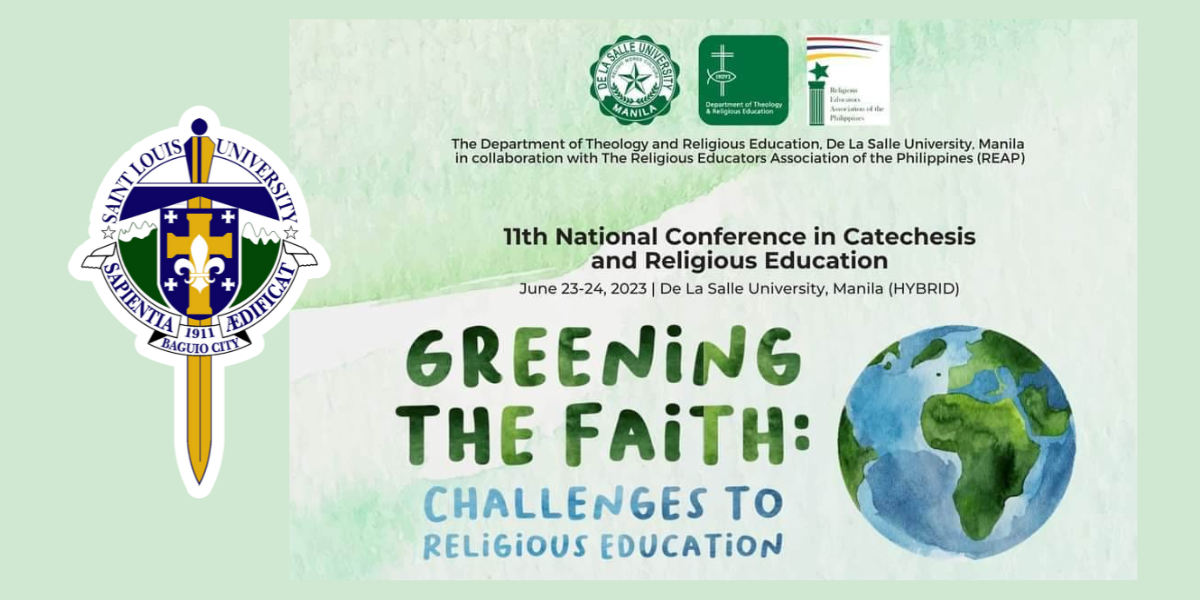by the Department of Religion
Prof. Dr. Jeramie Molino, the Head of the Department of Religion, was a plenary speaker at the 11th National Conference in Catechesis and Religious Education (NCCRE), which was held last June 23-24, 2023, at De La Salle University, Manila. The conference, done in hybrid mode, gathered over a hundred participants from Luzon, Visayas, and Mindanao.
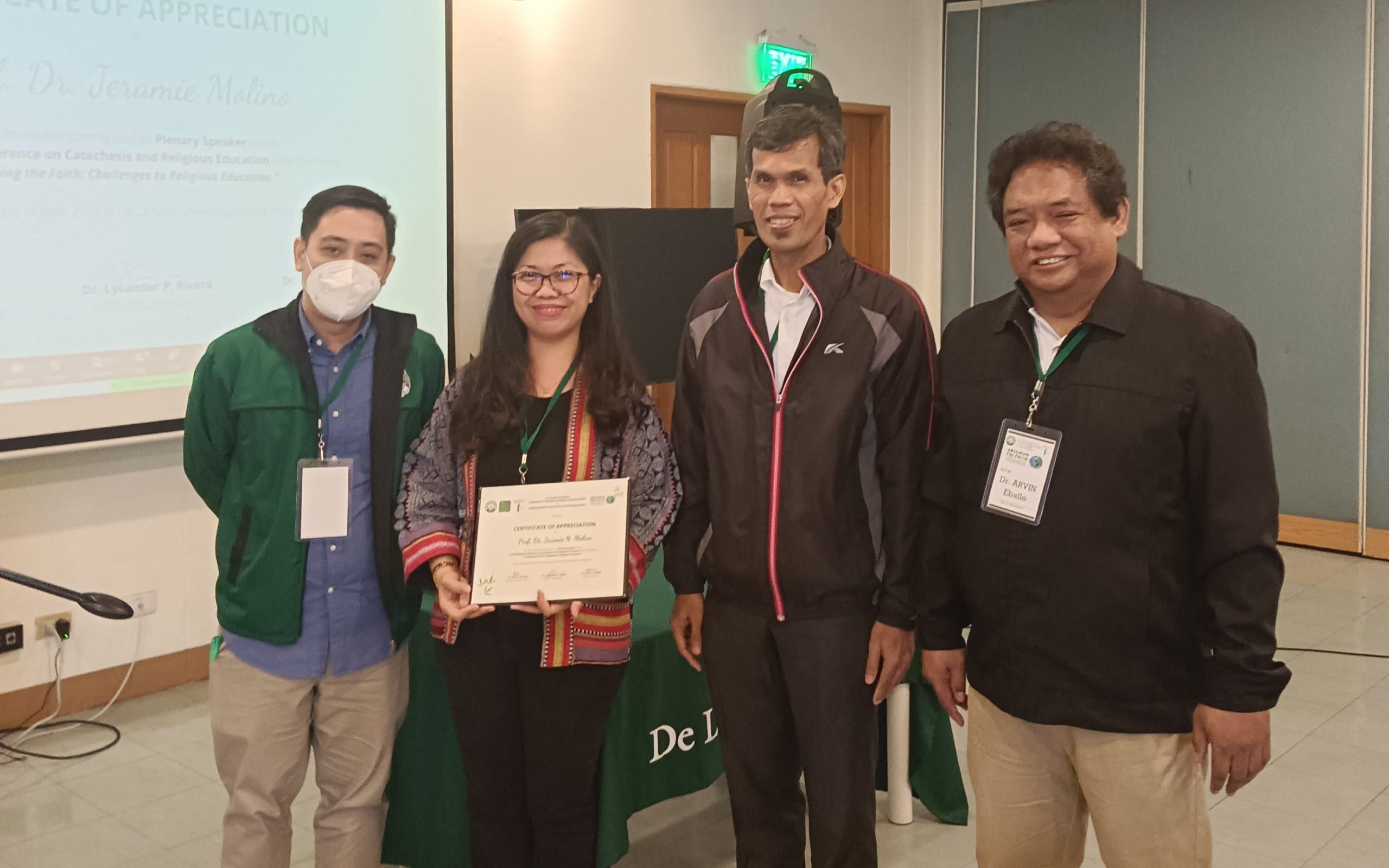
NCCRE invited four other plenary speakers that reflected NCCRE’s theme, “Greening the Faith: Challenges for Religious Education.” The first speaker, Rev. Fr. Reynaldo Raluto, PhD, is the Dean of Studies at St. John Vianney Theological Seminary in Cagayan de Oro and a strong advocate of ecology and the involvement of grassroots communities. His talk focused on the problem of the old interpretation of “anthropocentricism” vis a vis ecology in Christianity. It proposed clarifications in its proper interpretation using current papal documents and church resources.
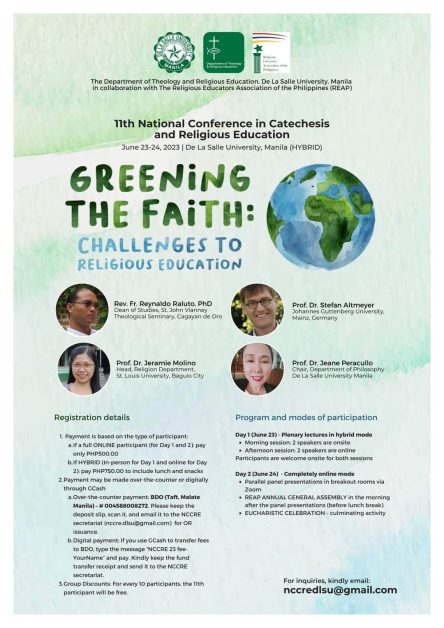
The second speaker is Prof. Dr. Jeramie Molino, the head of the Department of Religion at Saint Louis University. Dr. Molino presented her paper entitled “Ecotheology from Youth Environmental Attitudes: Possibilities for Religious Education,” which centers on the characteristics of Kalikhasang Balaan as an ecotheological view of young Filipinos through content analysis of a Christian environmentalism model drawn from young Filipino informants in a previous study. Young ecotheological views are known to follow theocentric, creation-centered ethical perspectives. Doing ecotheology in this respect highlights the role of God, the goodness of nature, and Christian stewardship as three key poles to guide students’ ecotheological reflection.
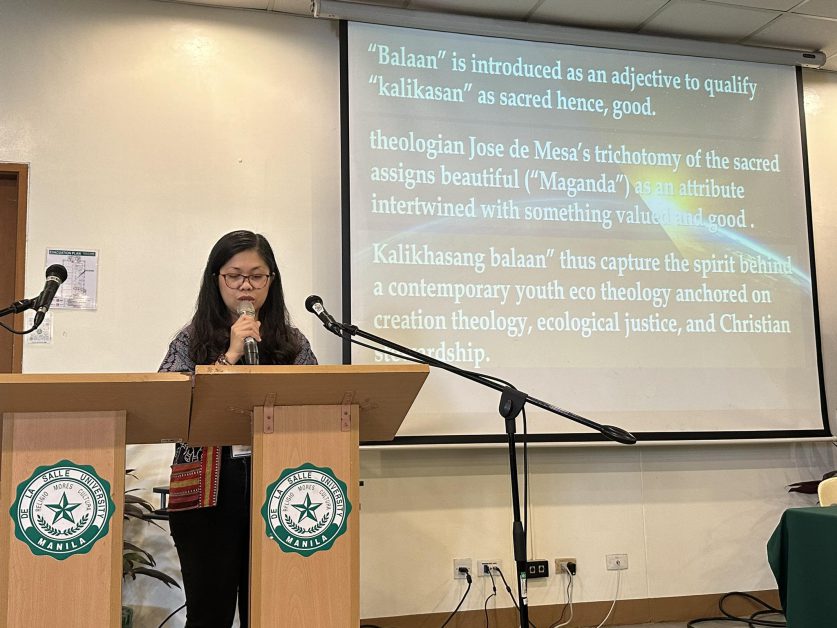
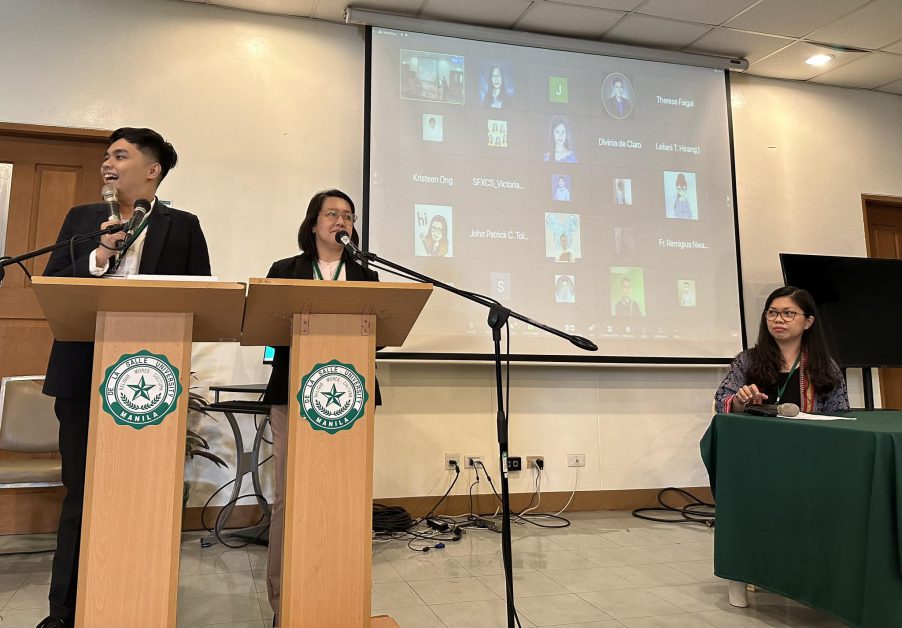
The third is Prof. Dr. Stefan Altmeyer, a German scholar at Johannes Guttenberg University in Mainz, Germany. His presentation focused on the place of imagination and visioning, using the concept of “utopia” as a useful tool for envisioning ecological healing and recovery. The fourth speaker is Prof. Dr. Jeane Peracullo, the Chair of the Department of Philosophy of De La Salle University. Her session was an in-depth discussion on case analysis demonstrating sound environmental practice.
For the parallel panels, there were around 30 papers presented. The papers dwelt on various themes in relation to religious education. Paper presenters shared theoretical and practical proposals and discussions. Overall, the entire academic gathering was enriching, with interesting questions and clarifications from the participants. The NCCRE voiced the need for a clear position for environmental preservation. It conveys that religious educators are facilitators of student formation, leading them to an understanding that the world and its human inhabitants need to nurture each other as we progress in history.

